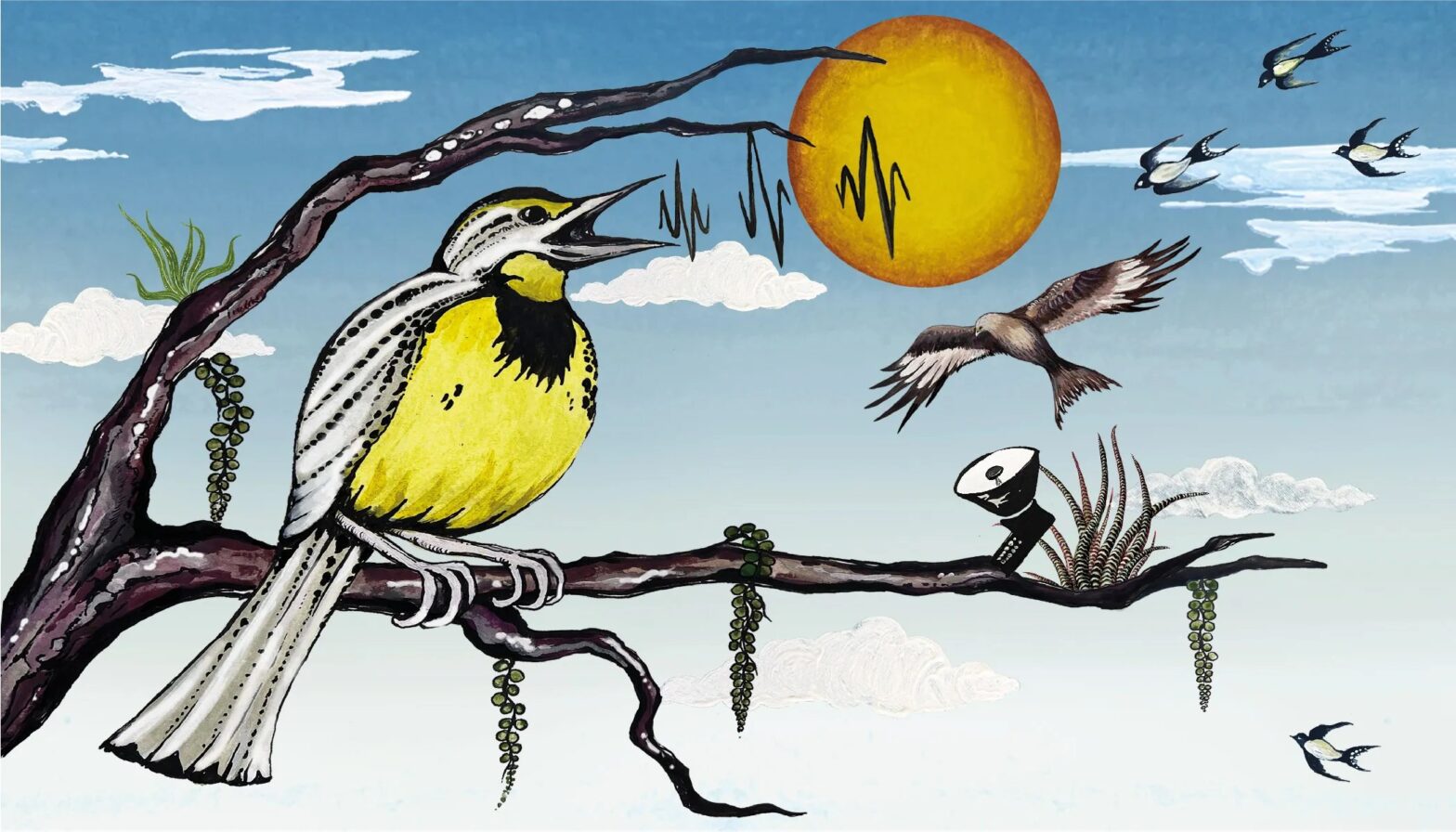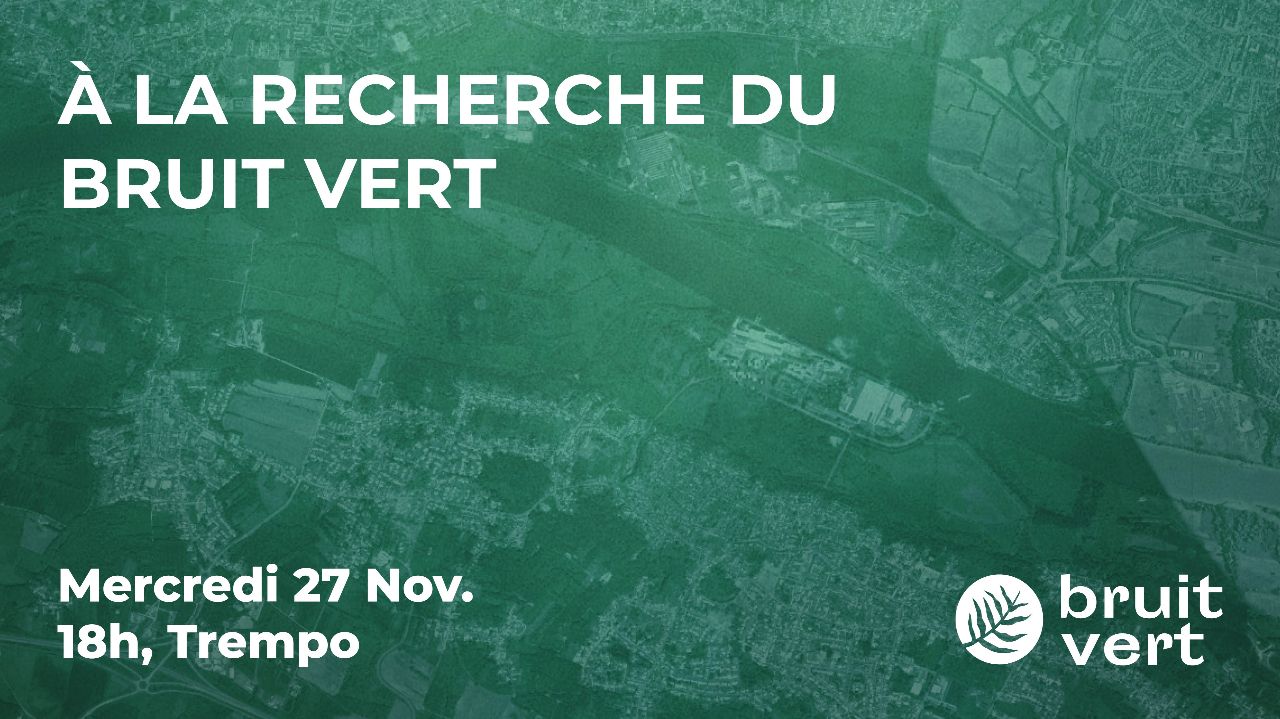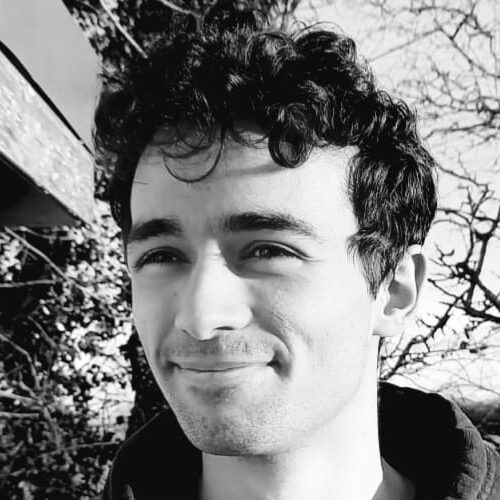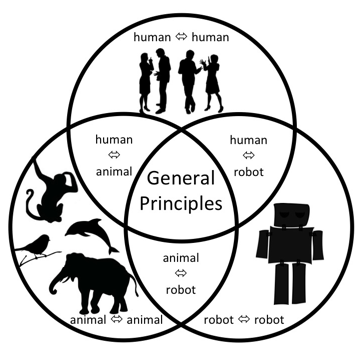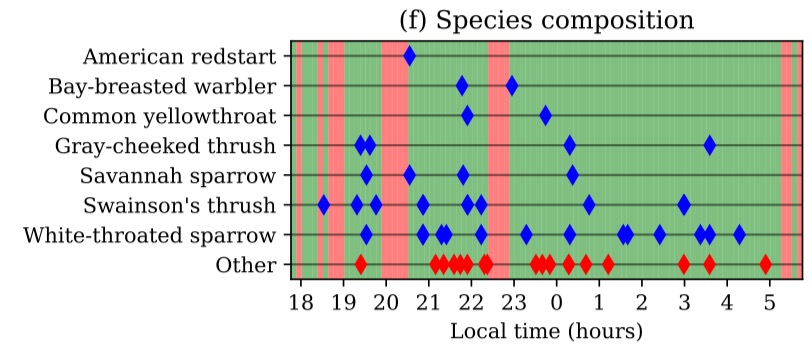Et si écouter littéralement la nature nous renseignait sur l’état de notre biodiversité ? Un podcast de Sophie Podevin avec Jérôme Sueur, Flore Samaran et Vincent Lostanlen.
Tag: bioacoustics
Human Auditory Ecology @ MNHN
Can we hear “ecological processes” underlying natural habitats and ecosystems (i.e., the processes responsible for the dynamics and functions of ecological systems at multiple spatial and temporal scales) ? If so, how do we hear such ecological processes ?
Robust Multicomponent Tracking of Ultrasonic Vocalizations @ IEEE ICASSP
Ultrasonic vocalizations (USV) convey information about individual identity and arousal status in mice. We propose to track USV as ridges in the time-frequency domain via a variant of timefrequency reassignment (TFR). The key idea is to perform TFR with empirical Wiener shrinkage and multitapering to improve robustness to noise. Furthermore, we perform TFR over both the short-term Fourier transform and the constant-Q transform so as to detect both the fundamental frequency and its harmonic partial (if any). Experimental results show that our approach effectively estimates multicomponent ridges with high precision and low frequency deviation.
BirdVox in MIT Technology Review
Vincent speaks to MIT Technology Review on the past, present, and future of machine learning for bird migration monitoring.
“Advancements in Bird Communication Studies” abstract deadline
Please submit your abstract (max. 200 words) towards a special session at Forum Acusticum / Euronoise, to be held in Málaga (Spain) on June 23–26, 2025.
Table ronde “à l’écoute du vivant” @ Trempo (Nantes)
Bruit vert est une structure de production nantaise, faisant le lien entre création sonore et questionnements sur le vivant. Pour cette Carte Blanche, elle donne la parole au groupe Labotanique, qui a composé son nouvel EP sur une île de Loire, interdite aux humains. Une table ronde explorera la question de l’utilisation du field recording dans… Continue reading Table ronde “à l’écoute du vivant” @ Trempo (Nantes)
Introducing: Matthieu Carreau
Matthieu is working on audio signal processing algorithms that can run on autonomous sensors subject to intermitent power supply. He is a PhD student, advised by Vincent Lostanlen, Pierre-Emmanuel Hladik, and Sébastien Faucou.
International Workshop on Vocal Interactivity in-and-between Humans, Animals and Robots (VIHAR)
The 6th edition of the VIHAR workshop will be held in Kos, Greece, as a satellite event of INTERSPEECH. Vincent will chair one of the sessions and present a short paper named Towards Differentiable Motor Control of Bird Vocalizations. Official website: http://vihar-2024.vihar.org
Table ronde “IA en recherche” @ Ifremer
Cet événement, organisé par les doctorants de l’Ifremer, a déjà rassemblé une centaine de participants chaque année autour de présentations orales, de tables rondes et d’ateliers de prise en main. Cette journée est ouverte à toute personne intéressée par l’IA dans la recherche, des applications, les limites et les aspects éthiques.
Rendez-vous le mardi 8 octobre 2024 dans le centre Atlantique de l’Ifremer à Nantes.
BirdVoxDetect: Large-Scale Detection and Classification of Flight Calls for Bird Migration Monitoring @ IEEE TASLP
Sound event classification has the potential to advance our understanding of bird migration. Although it is long known that migratory species have a vocal signature of their own, previous work on automatic flight call classification has been limited in robustness and scope: e.g., covering few recording sites, short acquisition segments, and simplified biological taxonomies. In this paper, we present BirdVoxDetect (BVD), the first full-fledged solution to bird migration monitoring from acoustic sensor network data.



